Health
Eye problems fixed with castor oil? Beware the viral TikTok trend, doctors warn: ‘Not a current treatment’
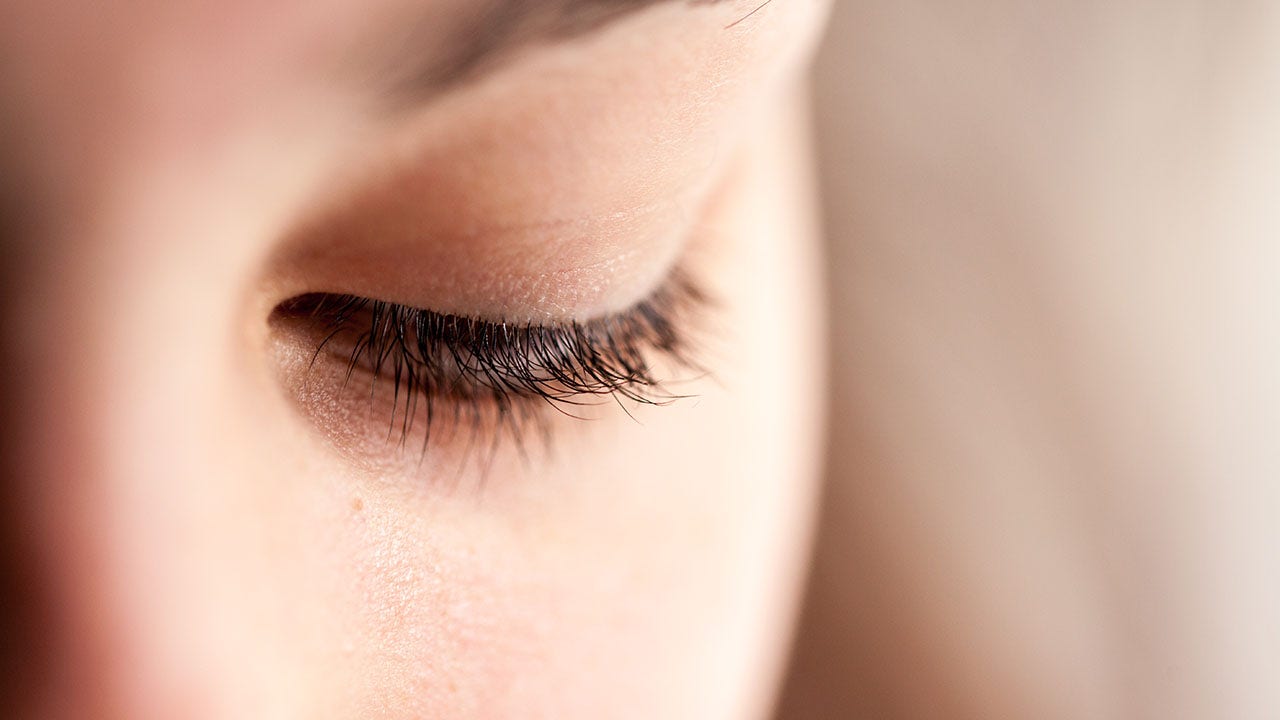
Castor oil has gone viral as a wellness trend on TikTok for vision problems, but medical experts warn the practice may do more harm than good when it comes to eye health.
“While castor oil is beneficial for moisturizing the skin, there is no current evidence that castor oil is safe to be used in the eyes,” Nishika Reddy, M.D., assistant professor of ophthalmology at Moran Eye Center’s Midvalley Health Center at University of Utah in Murray, Utah, told Fox News Digital.
Castor oil has been used for thousands of years, dating back to Ancient Egypt; it was first used to fuel lamps, according to previous studies. Cleopatra even reportedly used the natural remedy to straighten her hair and to brighten the white in her eyes.
EYE SPY A BIG PROBLEM: CALIFORNIA DOCTOR REMOVES 23 CONTACT LENSES FROM WOMAN’S EYE
But the U.S. Food and Drug Administration (FDA) still classifies castor oil as safe only as a laxative for constipation.
That hasn’t stopped those on TikTok from promoting its properties to improve eye dryness, floaters, eye infections and serious eye conditions, such as cataracts and glaucoma, under the #castoroilforeyesight, totaling at least 3.7 million views.
Castor oil has gone viral on TikTok, with users promoting it as a fix for eye dryness, floaters, eye infections and even serious eye conditions such as cataracts and glaucoma. Doctors stress that such use has “not been sufficiently studied and is not a current treatment for dry eye disease” or other conditions. (iStock)
One user boasted that she reads more without her glasses after rubbing the oil on her eyelids for two weeks.
Another woman also praised it as a natural remedy for helping to decrease her eye floaters, which are small dark shapes that “float” in the visual field, according to Mayo Clinic.
“If castor oil got into a person’s eye, they may notice temporary improved vision due to the moisturizing effect,” Dr. Reddy noted.
HOW TO TREAT DRY EYES
But “instead of using castor oil, which has not been sufficiently studied and is not a current treatment for dry eye disease, you can try artificial tears that are enhanced with flaxseed oil to provide moisture.”
What is castor oil?
Castor oil is a vegetable oil, rich in fatty acids. It’s made from pressing castor seeds, according to multiple reports.
Once the oil is ingested, the digestive tract breaks it down into ricinoleic acid in the small intestine, which helps stimulate the bowels for occasional constipation, per medical reports.
Placing castor oil on the eyelids will not treat serious eye conditions, such as glaucoma and cataracts, because those are problems inside in the eye.
Health experts, however, caution against using it for chronic constipation because it can cause cramping and diarrhea; they warn that overuse may lead to life-threatening electrolyte imbalances.
The ricinoleic acid prevents water loss from the skin, so manufacturers often capitalize on its moisturizing properties by adding it in lotions, makeup and cleansers, according to Healthline.
VISION PROBLEMS COULD MEAN HIGHER RISK OF DEMENTIA RISK, STUDY FINDS: ‘EYE HEALTH AND BRAIN HEALTH ARE CLOSELY LINKED’
Although experts say castor oil can be used safely as a skin moisturizer, people should also be alert for allergic side effects, include skin rashes, itching, swelling and skin irritation.
Most studies, however, that highlight castor oil’s promising properties are based on personal observations, not rigorous research trials.
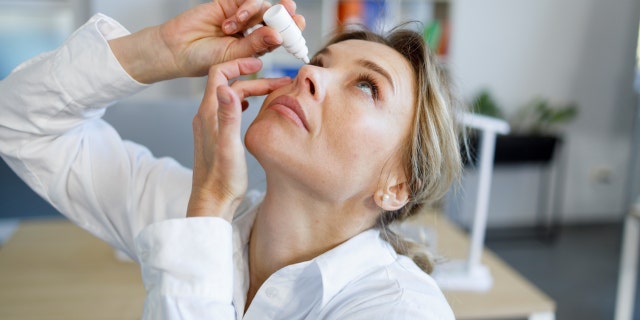
Certain types of glaucoma may show up via sudden eye pain, while cataracts can cause blurry vision. If you experience any eye pain or vision changes, you should seek prompt medical attention. (iStock)
More comprehensive research is needed to know if the wide-ranging benefits that people find successful in their own experience are safe and beneficial for the public, according to medical reports.
Glaucoma, cataracts not affected by castor oil
Placing castor oil on the eyelids will not treat serious eye conditions, such as glaucoma and cataracts, because those are problems inside in the eye, according to experts.
Glaucoma occurs when there is too much fluid in the front part of the eye, which damages the nerve that allows us to see — the optic nerve — according to the American Academy of Ophthalmology.
The eye is continually making a fluid known as aqueous humor.
Placing castor oil on the eyelids will not treat serious eye conditions, such as glaucoma and cataracts, because those are problems inside in the eye.
Normally the pressure in the eye is stable, because an equal amount of fluid that the eye produces also drains out through an area called the drainage angle, the academy added on its website.
BE WELL: GET REGULAR EYE EXAMS TO PROTECT VISION AND CATCH WARNING SIGNS EARLY
When the drainage angle is not functioning correctly, fluid in the eye increases, eventually damaging the optic nerve.
Cataracts is an age-related condition that often starts after 40 when the natural lens of the eye starts to become cloudy.
When proteins start to degrade the lens, our vision can appear blurry, akin to looking through a foggy windshield, according to American Academy of Ophthalmology.
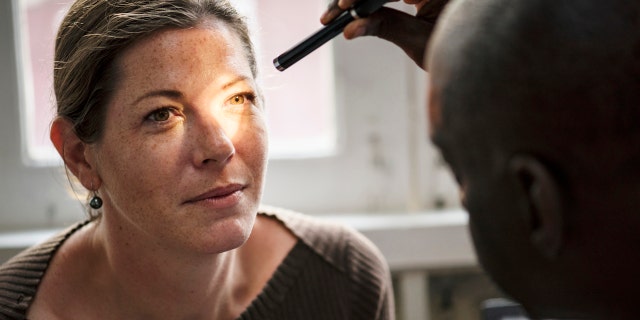
“Even if you think you have 20/20 vision, set up a time to get your eyes checked,” said one medical professional. (iStock)
Certain types of glaucoma may show up via sudden eye pain, while cataracts can cause blurry vision.
Any eye pain or vision changes should receive prompt medical attention.
How can we keep our eyes healthy?
It’s a good idea to get a baseline eye exam by age 40, even if you feel your eyesight is normal.
“Your brain adapts to vision loss, making some eye diseases go unnoticed until it is too late,” the academy noted in a press release.
When sitting at the computer for long periods of time, follow the 20-20-20 rule. Every 20 minutes, look at something 20 feet away for 20 seconds.
The eye association also encourages people to wear sunglasses, use eye protection when playing sports (such as racquetball or paintball), wear safety goggles when doing home repair jobs and be aware of eye fatigue.
CLICK HERE TO SIGN UP FOR OUR HEALTH NEWSLETTER
When sitting at the computer for long periods of time, follow the 20-20-20 rule: Every 20 minutes, look at something 20 feet away for 20 seconds.
The academy also encourages people to eat dark green, leafy vegetables such as kale and spinach, as well as orange vegetables, as these contain vitamins that help the nerve tissue inside the eye stay healthy.
“Even if you think you have 20/20 vision, set up a time to get your eyes checked,” Dianna Seldomridge, M.D., clinical spokesperson for the American Academy of Ophthalmology, which is based in San Francisco, California, told Fox News Digital.
“It may save your sight.”

Health
Your July 2024 Horoscope: Zodiac Sign Monthly Forecast | Woman's World

Sign Up
Create a free account to access exclusive content, play games, solve puzzles, test your pop-culture knowledge and receive special offers.
Already have an account? Login
Forgot your password?
Get back to the Sign In
Use left and right arrow keys to navigate between menu items.
Use escape to exit the menu.
Health
Childhood medical myths debunked as experts weigh in on 5 common warnings
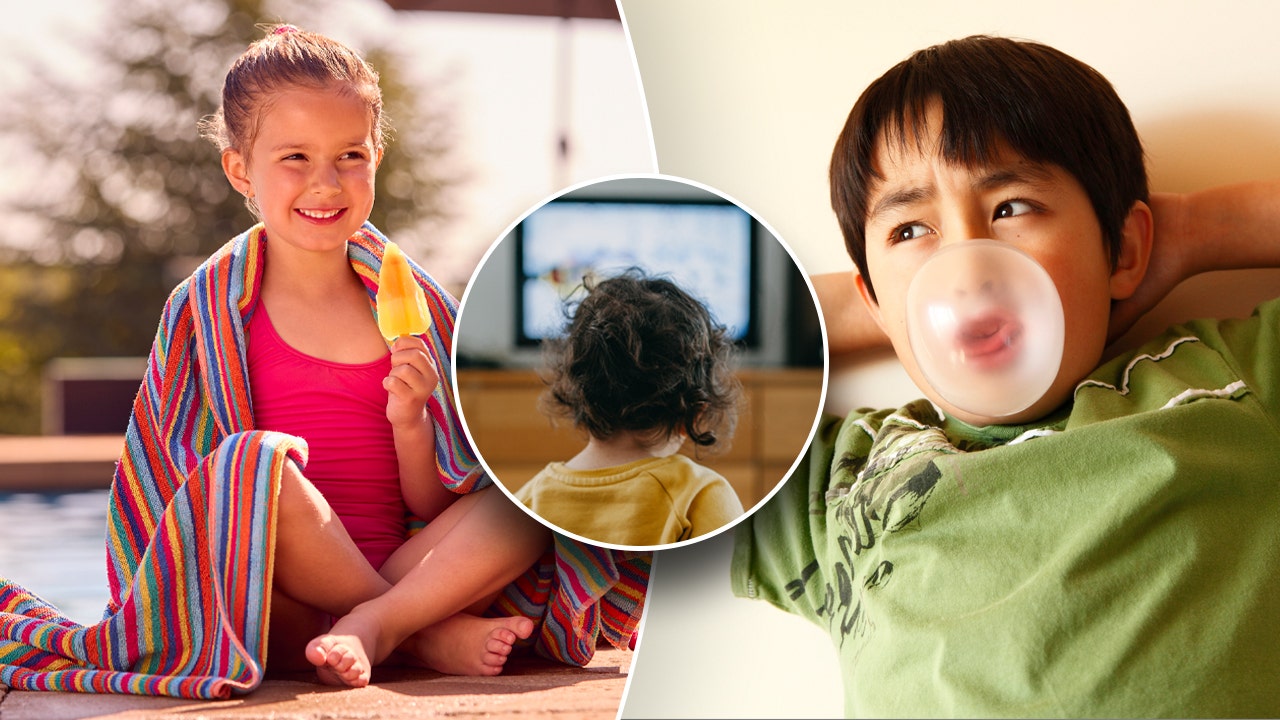
Mothers might know best, but it’s not always easy to separate fact from fiction when it comes to health advice.
A new report from University of California San Francisco (UCSF) Health has broken down several common wellness myths that children often hear while growing up.
Fox News Digital spoke with experts who revealed the truth behind common medical misconceptions.
PSYCHOLOGISTS REVEAL 7 WAYS PARENTS CAN DRIVE HAPPINESS BY HELPING KIDS FIND THEIR PURPOSE
Here are five.
Myth 1. Ginger ale relieves stomach aches
While actual ginger can help ease a stomach ache, most commercial ginger ales don’t actually contain the real thing, Michelle Jaelin, a registered dietitian practicing in Ontario, Canada, told Fox News Digital.
A new report from University of California San Francisco (UCSF) Health reveals the truth about several common wellness myths that children often hear while growing up. (iStock)
This childhood myth persists as parents give ginger ale to children because it’s sweet and bubbly, she said.
“It makes parents feel better that they are doing something for their child when they aren’t feeling well, and the myth persisted as a drink that helps a stomach ache,” Jaelin said.
The carbonated beverages could actually make the stomach pain even worse by increasing gas in the digestive tract, according to Healthline’s website.

Chicken soup has been viewed as a popular cold remedy since at least the 12th century, according to the National Institutes of Health (NIH). (iStock)
Drinks with real ginger also tend to contain excess added sugar, experts said – essentially the equivalent of soda that may worsen stomach pain.
Myth 2. Gum stays in your stomach for seven years
“Swallowed gum does not stay in your stomach for [seven] years, as the myths suggest,” Su-Nui Escobar, a registered dietitian based in Miami, Florida, told Fox News Digital.
“While swallowing gum is not recommended, if you do so accidentally, you will likely pass it like any other indigestible food.”
ASK A DOCTOR: ‘IS IT DANGEROUS TO SWALLOW GUM?’
The gum will pass through the stomach within two hours and be excreted in the stool after approximately two to five days, just like other foods, according to the recent UCSF report.
Although chewing gum can stick to many surfaces — including walls or desks — it travels mostly intact through the gastrointestinal tract without sticking to the intestinal walls, the report notes.

“Swallowed gum does not stay in your stomach for [seven] years, as the myths suggest,” an expert told Fox News Digital. (iStock)
But experts still caution against children swallowing gum, because substantial amounts might cause an intestinal blockage, Escobar warned.
This is a particular concern among children who have underlying constipation, according to Mayo Clinic’s website.
“If you suspect a blockage, seek immediate medical attention,” Escobar advised.
Myth 3. You shouldn’t swim for 30 minutes after eating
As summer kicks into high gear, there is good news for any swimmer itching to get in the water after lunch. Yes, it is usually OK to swim right after you eat.
The myth that you shouldn’t swim immediately after eating stems from a theoretical concern that blood flow will be diverted away from the arms and legs to help digest food, potentially leading to an increased risk of drowning.
“Based on current research, eating before swimming is not affiliated with a risk of drowning, and can be dismissed as a myth.”
But a comprehensive American Red Cross scientific review on the effects of eating before swimming showed no effect on performance in the water after a meal.
“A recent literature review did not provide any information related to an increased risk of drowning due to consuming food before swimming,” Jodi Jensen, PhD, member of the American Red Cross Scientific Advisory Council in Virginia, told Fox News Digital.
AS DROWNING DEATHS INCREASE, EXPERTS OFFER WATER SAFETY TIPS
“There is no supporting evidence from a major medical or safety organization that recommends refraining from eating before engaging in aquatic activities such as swimming,” added Jensen, who is also an assistant professor and aquatics director at Hampton University in Hampton, Virginia.

“There is no supporting evidence from a major medical or safety organization that recommends refraining from eating before engaging in aquatic activities such as swimming,” an expert told Fox News Digital. (iStock)
“Based on current research, eating before swimming is not affiliated with a risk of drowning, and can be dismissed as a myth.”
Although study participants experienced “minimal” side effects at different time intervals after eating, some outside experts do recommend waiting a bit after a meal if you plan to swim laps or compete to avoid any stomach cramping or digestive issues.
Myth 4. Chicken soup cures a cold
Chicken soup has been viewed as a popular cold remedy since at least the 12th century, according to the National Institutes of Health (NIH).
ASK A DOCTOR: ‘DOES CHICKEN SOUP REALLY HELP CURE A COLD?’
“Chicken soup is warm and comforting when you’re sick, but it’s not a cure,” Jaelin told Fox News Digital.
“Chicken soup is warm and comforting when you’re sick, but it’s not a cure.”
“Drinking any hot broth when your sinuses are stuffed can help to clear them out.”
The steam from the chicken broth may relieve a sore throat and congested sinuses, the NIH noted.
For more Health articles, visit www.foxnews/health.
When battling a cold, get plenty of clear fluids to help regulate body temperature and promote improved immune system function, said Jaelin.
“Chicken soup counts toward overall fluid intake,” she added.
It also helps prevent dehydration and clear out mucus, the NIH noted.
Myth 5. You will ruin your eyes if you sit too close to the TV
Sitting too close to the TV will not damage your eyes, though it may cause eye strain, according to the American Academy of Ophthalmology.
NEBRASKA BABY BORN WITH CATARACTS HAS 3 EYE SURGERIES TO SAVE HER SIGHT: ‘I JUST KEPT PRAYING’
To prevent eye strain while watching television, experts recommend keeping the room well-lit and taking occasional breaks from the screen.
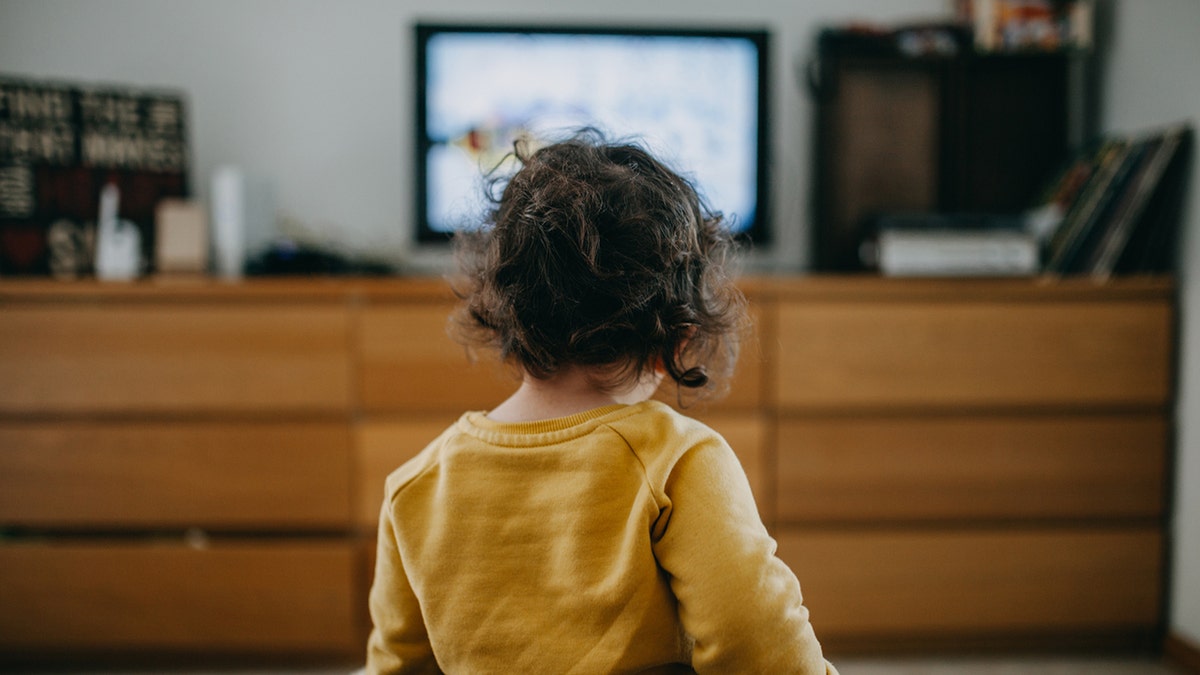
Sitting too close to the television will not damage your eyes, but may cause eye strain, according to the American Academy of Ophthalmology. (iStock)
“Children can focus at very close distances better than adults, and may not develop the same eye strain symptoms,” Nishika Reddy, M.D., assistant professor of ophthalmology at Moran Eye Center’s Midvalley Health Center at University of Utah in Murray, Utah, told Fox News Digital.
CLICK HERE TO SIGN UP FOR OUR HEALTH NEWSLETTER
It may be a red flag, though, if children are watching television too closely, experts warned.
The behavior may indicate an underlying vision issue that should be addressed, the UCSF report noted.
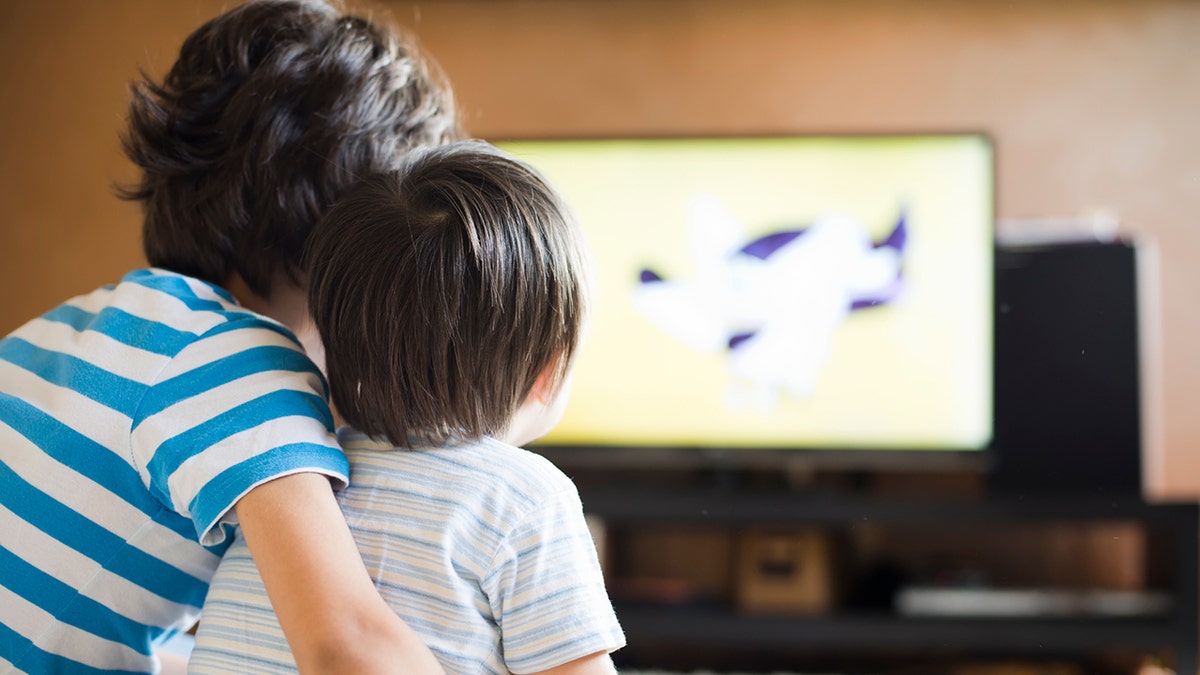
The American Academy of Pediatrics says high-quality digital media can be introduced to children between 18 and 24 months of age (only when supervised by parents or caregivers). The academy also recommends limiting screen time to one hour a day for children ages 2 to 5. (iStock)
“See an eye care provider to perform an eye exam for your child,” Reddy recommended.
A more concerning issue is the indirect effect of too much screen time, according to the report.
Although experts say there is no one-size-fits-all guideline when it comes to children and screen time, the American Academy of Pediatrics says high-quality digital media can be introduced to children between 18 and 24 months of age (only when supervised by parents or caregivers).
The academy also recommends limiting screen time to one hour a day for children ages 2 to 5.
Fox News Digital reached out to UCSF for additional comment about its new study.
Health
The Anti-Inflammatory and Mediterranean Diets: Two Immune System-Boosting Diets That Don't Skimp on Flavor | Woman's World

Sign Up
Create a free account to access exclusive content, play games, solve puzzles, test your pop-culture knowledge and receive special offers.
Already have an account? Login
Forgot your password?
Get back to the Sign In
Use left and right arrow keys to navigate between menu items.
Use escape to exit the menu.
-

 News1 week ago
News1 week agoNYC pastor is sentenced to 9 years for fraud, including taking a single mom's $90,000
-

 News1 week ago
News1 week agoRead the Ruling by the Virginia Court of Appeals
-

 News7 days ago
News7 days agoTracking a Single Day at the National Domestic Violence Hotline
-

 Politics1 week ago
Politics1 week agoTrump classified docs judge to weigh alleged 'unlawful' appointment of Special Counsel Jack Smith
-

 News1 week ago
News1 week agoSupreme Court upholds law barring domestic abusers from owning guns in major Second Amendment ruling | CNN Politics
-

 Crypto1 week ago
Crypto1 week agoFactors Driving the Evolution of Cryptocurrency Markets
-

 Politics7 days ago
Politics7 days agoSupreme Court upholds federal gun ban for those under domestic violence restraining orders
-

 News1 week ago
News1 week agoOpinion: Extreme heat kills. What the US can do to protect the most vulnerable | CNN















